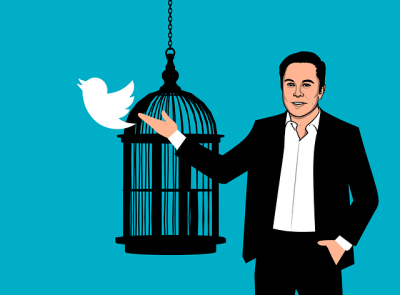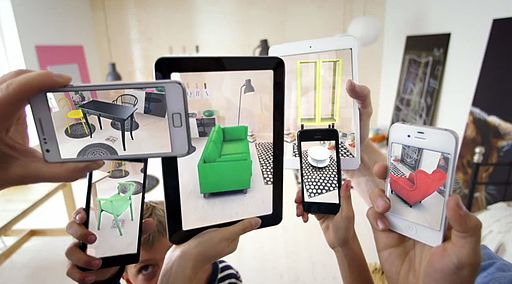There is not much mention of education in all the discussions this year about the metaverse, but it is thought that it will better allow students to have a cyber-physical learning experience. The virtual world will merge with the real one more and more seamlessly.
For the past 20 months, there has been a global educational experiment in online learning. But don't think that what has happened in education because of the COVID-19 pandemic is an accurate account or prediction of what teaching and learning are at their best, or what they will become in a metaverse. The forced move to online education was awkward for most schools, students and teachers, particularly in the first two semesters. By the spring of 2021, all parties were better adapted to learning online. For the fall 2021 semester, many schools were able to go back to their pre-pandemic methodologies and content delivery. The best schools and teachers have not abandoned what was learned in those online days, and for them learning has continued to shift between online and in person. Online delivery has become more of an integral component of education. The whole move online in 2020 and 2021 should lead to more inclusive and creative pedagogical solutions.
My earlier post on the building of the metaverse did not consider education. No one should think that what we now call online education looks anything like the metaverse. Actually, some online worlds from decades past, such as Second Life, are closer to the metaverse than current online education. The building game Minecraft is enjoyed by millions of young and old learners and has found a place in higher education too. Both of those products have been used to enhance lectures, allow virtual field trips and make students creators. I took tours of campuses in Second Life at the start of this century. They were crude by today's tech standards but they didn't require a clunky headset. I did it once in front of a giant screen and it was more "immersive" but no metaverse.
Current virtual reality (VR) simulations allow students in medicine, engineering, and architecture to practice skills that are difficult to rehearse in real life.
Most followers of the metaverse will say that some forms of it are already here. I discussed in the previous article some companies that already offer applications and platforms that fit part of the definitions (and there are multiple definitions as of now) of the metaverse. Another company that is making inroads to educational use is Roblox. In its current version, it looks very much like a game, which is often a serious deterrent for educators to consider using technology. But they are expanding the tools offered and giving users and developers more opportunities to create experiences of their own. with an emphasis on safety.
Roblox has more than 203 million monthly active users in their virtual world. Some might call this platform a "proto-metaverse." But so far, it lacks the VR and AR that are part of all definitions of the metaverse. There is also caution required here for safety since many of those users are children. Roblox CEO David Baszucki may have used some hyperbole in saying during an interview that his company’s business model predicted the metaverse 17 years ago.
The media is already countering any metaverse visioning with cautionary tales of the dangers it might also offer. It ranges from fears that predators might use it to lure children. Since the porn industry has been at the lead with many technologies from VHS tapes and DVDs to online video, there's a good chance that they will want in on the metaverse. A lot of warnings currently come from a lack of understanding about what a metaverse will look like, and the misperception that somehow Zuckerberg and Meta will be THE metaverse rather than a part of it.
John Preston (Professor of Sociology, University of Essex) believes that some aspects of the metaverse are already in universities. His fear is that it will offer revolutionary potential for greater profits to be made in higher education. His research on digital technologies in higher education shows that a metaverse could monetize the student experience even more than now and also exploit the work of academics.
Jaron Lanier, who was an early promoter of VR and founded the first VR company (VPL Research) and made Virtual Reality the term for the head-mounted display has changed his mind on the metaverse. I attended a workshop he did at a conference in the late 1990s and wore his headset and put on the wired gloves to walk through a virtual world while moving around a small room that had a few ramps and objects that became something else in my headset view. It was pretty cool. And pretty awkward. I heard him speak at an edtech conference around 2010 when he had published his "manifesto" You Are Not A Gadget. Lanier's wonder-filled dreams for what these new technologies as we turned into the 21st century could provide for humanity had become nightmares. His 2018 book, Ten Arguments for Deleting Your Social Media Accounts Right Now indicates that the dreams are still nightmares. In a recent Forbes article, Lanier says, "If you run [the metaverse] on a business model that’s similar to the one that Facebook runs on, it’ll destroy humanity. I’m not saying that rhetorically. That is a literal and specific prediction that humanity could not survive that."
While some people may be creating a virtual research center ecosystem using Microsoft Teams, others are suggesting that we need to forget the tech and focus on human beings, while some feel we need to use digital simulations to prepare students for future careers.
My own metaverse predictions are that it is farther away than the current buzz seems to indicate, and that augmented reality (AR) will play a greater role than virtual reality (VR) - unless they can get rid of that clunky VR headgear. I see that Meta, which owns Oculus (known initially for making hose clunky goggles) has dropped the Oculus branding. Maybe they will also drop the headgear.

